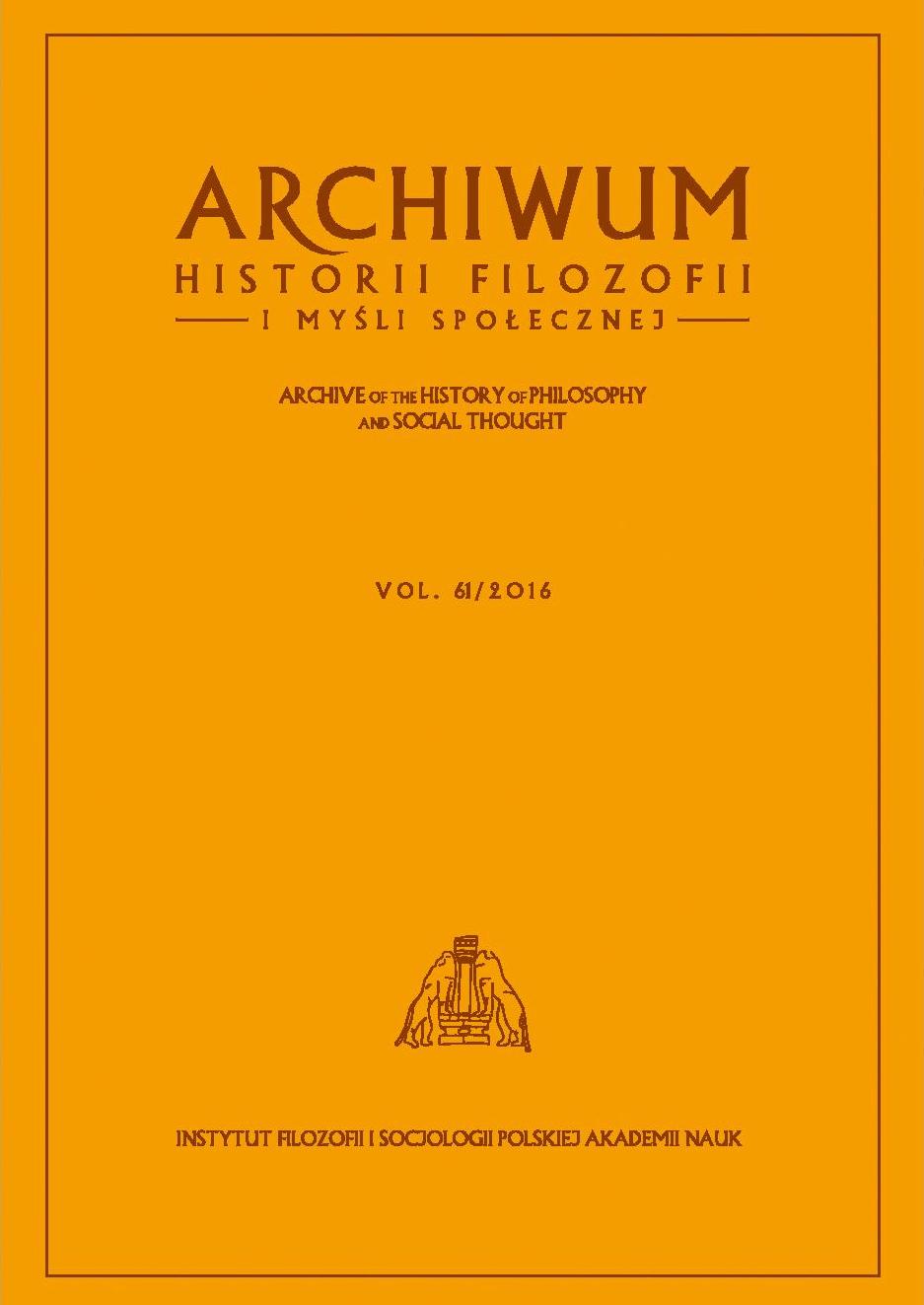The Aristoxenian Theory of Soul as Harmony
The Aristoxenian Theory of Soul as Harmony
Author(s): Anna Maria LaskowskaSubject(s): Philosophy, Philosophical Traditions, Special Branches of Philosophy, Ancient Philosphy
Published by: Instytut Filozofii i Socjologii Polskiej Akademii Nauk
Keywords: Aristoxenus; Cicero; Phaedo; soul; harmony; hermosmenon; form
Summary/Abstract: Aristoxenus of Tarentum (c. 360 - 300) was one of the most talented Aristotle’s students. He is known mainly as the greatest musicologist of Ancient Greece, author of Elementa harmonica and Elementa rhythmica, the oldest preserved treatises on music. The aim of this article is to reconstruct of his theory of the soul that survived to our times in the form of synoptic remarks of Cicero and Lactantius. In these fragments it is clearly stated that Aristoxenus considered soul as harmony. This vision seems to echo an old concept, mentioned already in Platonic dialogue Phaedo that soul is like harmony in the musical instrument and in consequence it is mortal. But it can be shown that the Aristoxenian theory of soul is different from the Platonic exposition. The misinterpretation of Aristoxenus’ thought by Cicero and then by Lactantius is based on a sort of simplification or/and misunderstanding of the vocabulary used by Aristoxenus, especially of the term harmony. Aristoxenus in his theory of music is not using the term ἁρμονία in the sense of a perfect joining of the opposites as was Plato, but applies it only for denoting a type of musical scale (next to the diatonic and chromatic one). The word that corresponds to the idea of harmony in music was τὸ ἡρμοσμένον, (to hermosmenon), i.e. what is harmonized. By showing the significance of this term it can be demonstrated that Aristoxenus, against the opinion of Cicero and Lactantius, developed a doctrine of the soul different from Plato.
Journal: Archiwum Historii Filozofii i Myśli Społecznej
- Issue Year: 61/2016
- Issue No: 61
- Page Range: 287-295
- Page Count: 9
- Language: Polish

